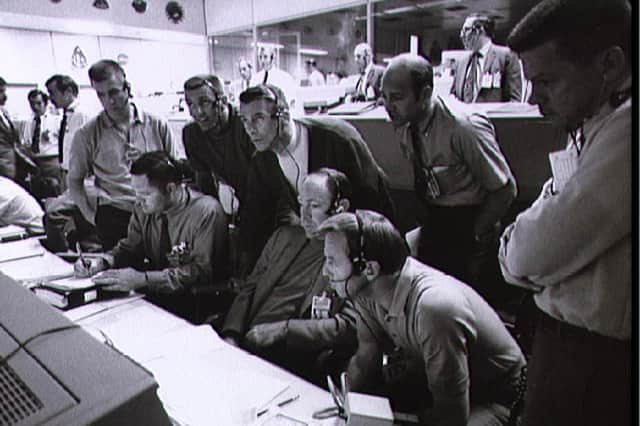Parents can help wayward teenagers by being their 'mission control' and guiding them back to safety – Karyn McCluskey


He has shown that even lives that are written off can be transformed, that in every young person whose education is unfinished, who comes into conflict with the law, whose ambition is curbed, there is untapped talent.
Sometimes it just needs a person or event to start the change that transforms a life. For him, it was the book Trainspotting that led to a love of literature.
Advertisement
Hide AdAdvertisement
Hide AdI often think that parenting teenagers is a bit like being in the control centre of the Apollo 13 mission. After an explosion happened onboard, the mission to the moon was abandoned and to get home the crew had to loop around the far side of the Moon in a cold, damp cabin out of contact until they eventually came back on course and landed safely back on Earth.
I think teenagers too can go off course, lose contact and yet we hope and pray they eventually come back into hailing frequency and get back on track. It is terrifying for parents with teenagers or young people who embrace the chaos wholeheartedly and whose lives become intertwined with alcohol, drugs or general mayhem. I’ve met parents whose torment is written over their faces, who confiscate drugs and weapons and try to keep their young people in the house often to no avail.
It was always thus. Peter the Hermit wrote in AD 1274: “The world is passing through troublous times. The young people of today think of nothing but themselves. They have no reverence for parents or old age. They are impatient of all restraint. They talk as if they knew everything, and what passes for wisdom with us is foolishness with them.”
Through years of working with many young people in their teens and early 20s, there were traits that came up with regularity: the love of risk, the feeling of imperviousness and that they would live forever, the intoxication of being with friends who thought just like them or indeed didn’t think at all. Sometimes more disturbingly they embraced nihilism, believing in nothing and hell bent on destruction. Many of these traits are part of the developing adolescent brain, people grow out of it.
The constant in Graeme Armstrong’s life through all the chaos was his mum – his mission control, always there. She kept calling out, even when he was out of radio contact.
We need to do this for all our young people, no matter how distant they seem. When they’re immersed in social media, we need to call out, ask what’s going on, try to maintain an interest in their lives and that of their friends. It’s a fine balance.
They need privacy, but yet they have an online life, which is all-consuming and as real as the bricks and mortar that surround them in their homes. This online life is hidden from parents, online friendships are made and broken, fights started, challenges made, alliances formed, plans developed, and sometimes this leads to crime.
So here’s to the parents who keep calling out, hoping their message is eventually heard.
Advertisement
Hide AdAdvertisement
Hide AdKaryn McCluskey is chief executive of Community Justice Scotland
